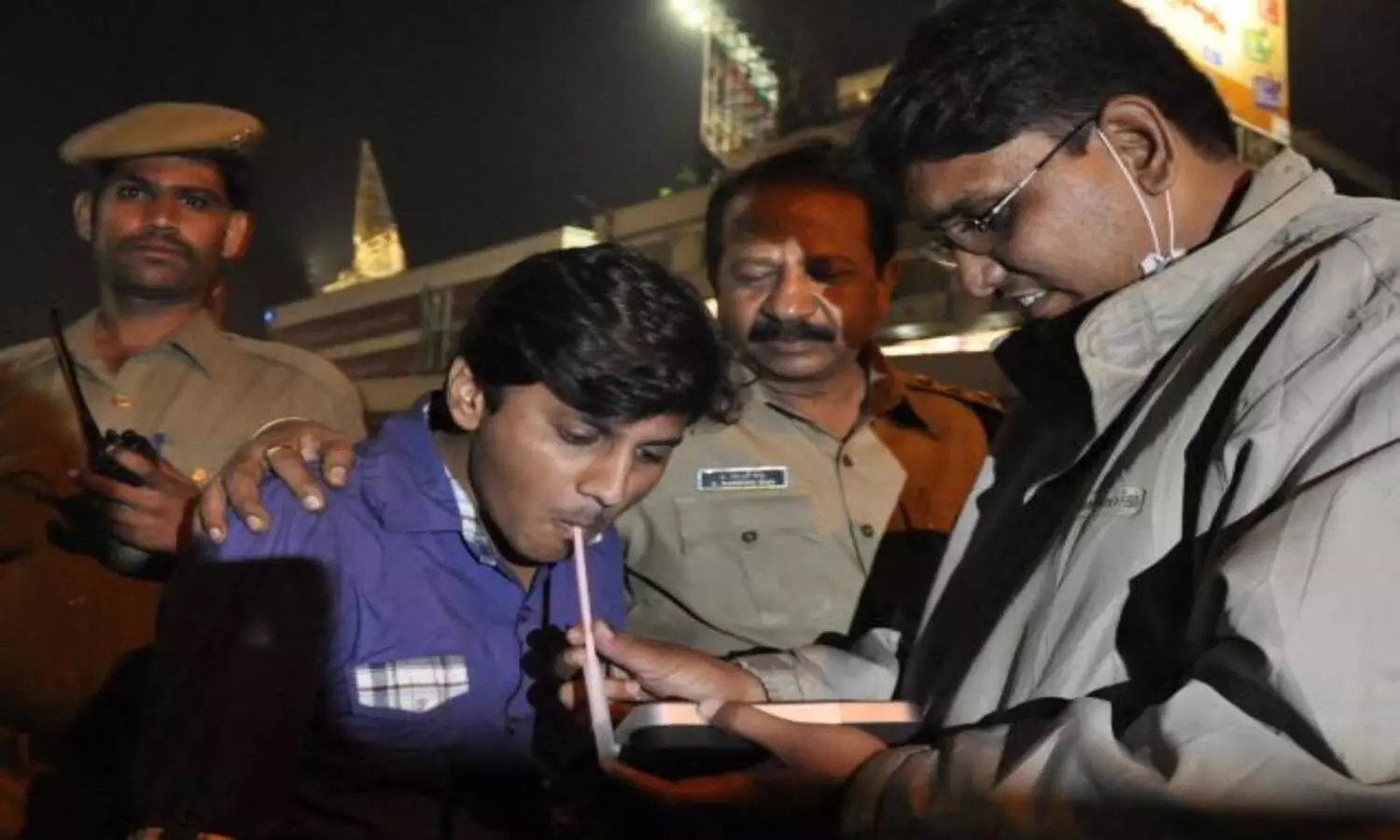Explained: Why Telangana police cannot seize drunk drivers' vehicles
The court order clearly mentions that the intention of the legislature is to reduce the number of accidents and deaths and not to harass the owners of the vehicles by detaining the vehicle for days together.
By Newsmeter Network
Telangana high court has declared that the police officers have no right to confiscate the vehicles of drunk drivers.
As per section 185 (b) of the Motor Vehicles Act, 1988 whoever while driving or attempting to drive a motor vehicle, is under the influence of a drug to such an extent as to be incapable of exercising proper control over the vehicle, is punishable. Therefore driving a vehicle in an intoxicated condition is an offence and such a person is barred from driving.
As per sub-section 3 of section 202 of the Act, a police officer arresting the driver of a motor vehicle without a warrant shall if circumstances so require take any steps he may consider proper for the temporary disposal of the vehicle.
In other words, the police have the power to seize the vehicle and keep the same in safe custody till the owner of the vehicle or any authorized person approaches the police officer with a valid driving license, identity proof, and certificate of registration.
Though as per section 207 of the MV Act 1988, there are provisions to confiscate a motor vehicle, it applies only if the particular vehicle does not have a permit or driving license, certificate of registration, or is being driven by a person underage. The particular section does not give the police the power to detain vehicles on the ground that the driver is found in an intoxicated condition.
Section 19 of the MV Act, 1988 deals with the power of licensing authority to disqualify a person from holding a driving license or revoke such license. The section does not grant any powers to the police to seize a vehicle driven by an intoxicated person.
Rule 21 of the Central Motor Vehicles Rules, 1989 deals with the powers of licensing authority to disqualify a person driving under the influence of drinks or drugs. But the above rule also does not grant any powers of seizing the vehicle.
Rule 448 of the Telangana State Motor Vehicles Rules, 1989 deals with powers to detain vehicles for offences mentioned under section 207 of the MV Act 1988 (lack of permit, driving license, certificate of registration, or underage driving).
It also mentions the procedure to be followed for the release of the seized vehicles. But the rule does not grant any powers of seizing a vehicle driven by an intoxicated condition.
Police do not have the power to seize or detain vehicles on the ground that the person driving the vehicle was found in an intoxicated condition. But they are enabling provisions. For instance, a police officer finds an intoxicated person driving the vehicle and if he is alone in the vehicle, then the officer has the power to detain or seize the vehicle and keep it in the nearest police station or appropriate place for safe custody.
At the same time, it is the duty of the officer to release the seized vehicle either to the owner or any authorized person who is not in drunken condition and is in a position to drive the vehicle and holds a valid license.
If there are two people in the car and if one of them is not drunk and holds a valid driving license, then the police should not detain the vehicle.
The court order clearly mentions that the intention of the legislature is to reduce the number of accidents and deaths and not to harass the owners of the vehicles by detaining the vehicle for days together. It instructs police officers to strictly follow the said law and provisions of the act.